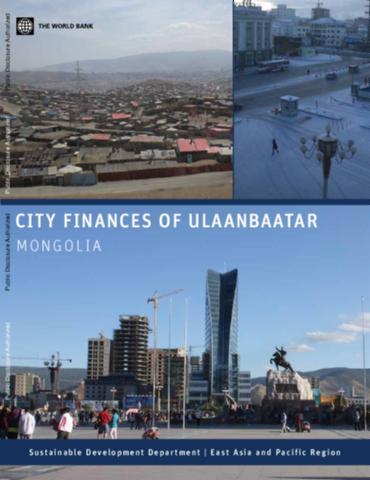Resource information
Ulaanbaatar's (UB) population has swollen from half a million in 2001 to approximately 1.2 million in 2011, accounting for over 40 percent of the country's population. This trend is likely to continue as economic growth is increasingly concentrated in UB. With its growing population and concerns in rising inequality, the city is facing increasing pressure to maintain and expand service provision (especially infrastructure). The local tax on wages is expected to continue to provide substantial revenues to the UB government, which will assist the growing demand for services. Additionally, a new 'capital city tax' is expected to come into effect in 2013. The decision of the central government (CG) to pursue further decentralization gives greater leadership to the UB government and its districts. It also provides local broader decision-making authority as well as opportunity for citizen's participation and for the improvement of governance and transparency. Therefore, a key challenge for UB and its districts is ensuring that the local fiscal system is sound and ready to handle a greater volume of revenues to achieve sustainable and inclusive growth. The city also needs to develop a robust and transparent fiscal management system if it is to make an effective use of new revenue sources. The main objective of this study is to understand the inner workings of the municipal finance system in Ulaanbaatar and its districts.


